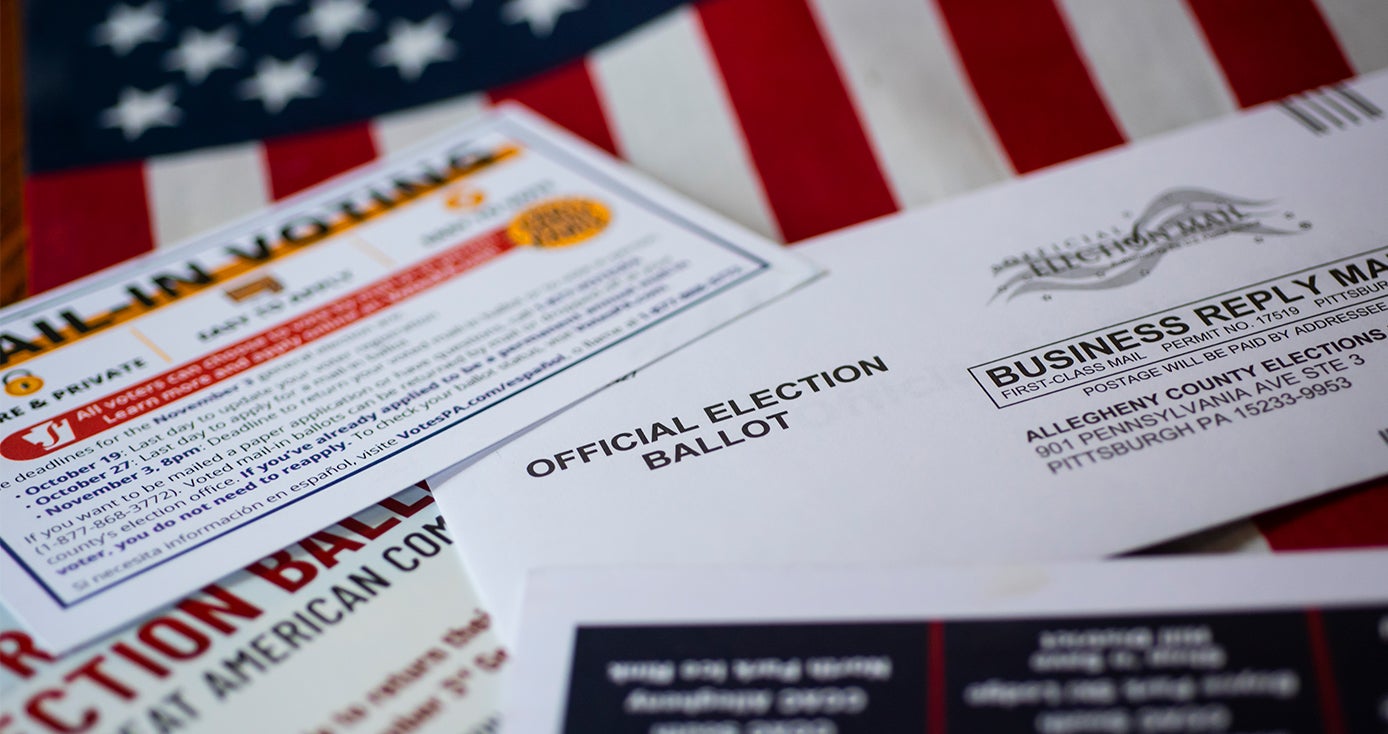
Subscribe to Pittwire Today
Get the most interesting and important stories from the University of Pittsburgh.4 Expert Reactions to the Election
Election Day 2020 is over but the votes to determine who will be the 46th president of the United States are still being counted in several states.
With the big day behind the nation and bigger questions ahead, Pitt experts shared their thoughts on how the process unfolded, what citizens should expect in coming days and how to make a positive impact no matter the outcome.
Jennifer Brick Murtazashvili, associate professor in the Graduate School of Public and International Affairs and director of the Center for Governance and Markets, on election day expectations versus reality:
Voting in the U.S. went smoothly and far better than many of our media expected. We have known for weeks that the recount process in Pennsylvania would be complicated.
There were a lot of really terrible predictions among pundits, analysts, media and even many of my fellow social scientists about election day. There have been many predicting the death of democracy and the rise of violent conflict. What we can say is that our democracy is imperfect but incredibly vibrant and resilient. My sense is that we have a lot to be proud of. We’ve seen high turnout across the board and elections that have moved relatively smoothly during unprecedented circumstances. It is my hope that we can find common ground on this issue as a way to build moving forward.
Kristin Kanthak, associate professor of political science in the Kenneth P. Dietrich School of Arts and Sciences, on student voter enthusiasm:
You see how enthusiastic the students are. In my class yesterday, nearly all of them had voted, most for the first time. Their anxiety level was really high, but that’s because they are so invested in this election. So I’m trying to help them figure out how to read the tea leaves in 2020, but these are people who are creating a voting habit that will last the rest of their lives. It was a great reminder of how being hyper-focused on turnout in one particular county in one particular year is a bit myopic.
Chris Deluzio, policy director at the Institute for Cyber Law, Policy, and Security, on Pennsylvania’s results:
As we’ve known and expected, it is going to take some time for Pennsylvania counties to finish tabulating the ballots. Nothing could be more central to democracy than ensuring that every vote is counted. And we must be on guard against any candidate or official looking to cast aside our votes and voices.
Andrew Lotz, senior lecturer in the Department of Political Science and academic advisor on how citizens can spend time while waiting for totals:
Pennsylvania is looking to be a particularly important state given the breakdown of how things stand now, so we can expect heightened attention paid to us and our counting process. In the short term, I'm encouraging people to find ways to put energy into things that they can affect. While the votes are tallied, there are going to be clear next steps regardless of results: We'll still need to communicate what we want to government offices, still have to advocate for the things we need to see happen and we still have to connect to and care for one another in a time when we could be pulled in disparate directions.
In the medium term I'd think we need to really have some conversations as a nation about our electoral practices. Yesterday in my class on justice we did an exercise just talking through ways to improve the electoral system in the U.S, all the flaws and bumps that exist, and oddities of how it's been structured. And we drew a pretty extensive list of changes together that spanned both small things and huge changes. There are spots where our system itself has flaws, inconsistencies and just plain antiquated procedures, and it's up to us to solve them.


